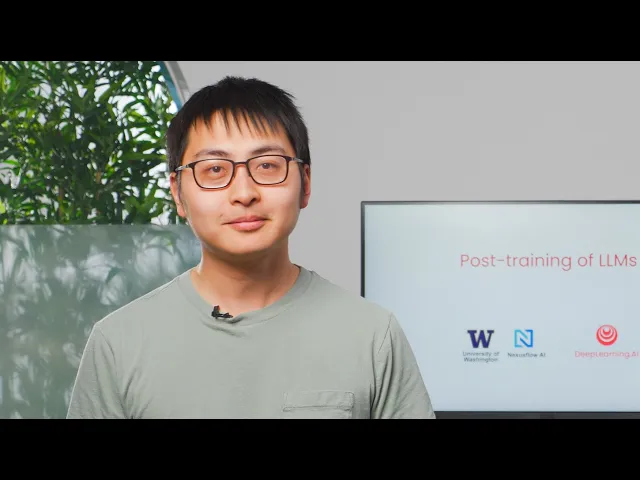Learn to post-train LLMs in this free course

Free LLM post-training for businesses
In the rapidly evolving landscape of artificial intelligence, large language models (LLMs) have emerged as transformative tools for businesses across sectors. However, the gap between generic, pre-trained models and the specific needs of individual organizations remains a significant challenge. Enter post-training: the process of adapting existing LLMs to perform better on domain-specific tasks. A new free course from DeepLearning.AI and Cohere is offering businesses the knowledge they need to harness this powerful technique, potentially transforming how companies leverage AI.
Key Points
-
Post-training allows businesses to customize general-purpose LLMs for specific domains without the massive computational resources required for training from scratch.
-
The free course covers three essential techniques: continued pre-training (which adapts the model to domain-specific language), supervised fine-tuning (which improves task performance), and RLHF (reinforcement learning from human feedback, which aligns models with human preferences).
-
While traditional LLM development requires expensive infrastructure and specialized expertise, post-training techniques can be implemented with relatively modest computational resources, making advanced AI capabilities more accessible to businesses.
Why Post-Training Matters Now
The most insightful aspect of this development is how post-training democratizes advanced AI capabilities. Until recently, truly effective AI implementations required either enormous computational resources to train models from scratch or acceptance of generic models that weren't optimized for specific business contexts. Post-training changes this equation dramatically.
This matters because we're at an inflection point in AI adoption across industries. The companies that can effectively customize LLMs for their specific needs—whether that's understanding industry jargon, adhering to company guidelines, or excelling at domain-specific tasks—will gain significant competitive advantages. A customer service AI that genuinely understands your product terminology or a research assistant that's fluent in your industry's literature represents a step-change improvement over generic models.
Beyond the Course: Real-World Applications
What the course announcement doesn't fully explore is how dramatically post-training is already reshaping certain industries. In healthcare, for instance, companies like Tempus are using domain-adapted language models to interpret medical literature and patient records with unprecedented accuracy. Their models, post-trained on medical corpora, can identify subtle patterns in clinical notes that
Recent Videos
How To Earn MONEY With Images (No Bullsh*t)
Smart earnings from your image collection In today's digital economy, passive income streams have become increasingly accessible to creators with various skill sets. A recent YouTube video cuts through the hype to explore legitimate ways photographers, designers, and even casual smartphone users can monetize their image collections. The strategies outlined don't rely on unrealistic promises or complicated schemes—instead, they focus on established marketplaces with proven revenue potential for image creators. Key Points Stock photography platforms like Shutterstock, Adobe Stock, and Getty Images remain viable income sources when you understand their specific requirements and optimize your submissions accordingly. Specialized marketplaces focusing...
Oct 3, 2025New SHAPE SHIFTING AI Robot Is Freaking People Out
Liquid robots will change everything In the quiet labs of Carnegie Mellon University, scientists have created something that feels plucked from science fiction—a magnetic slime robot that can transform between liquid and solid states, slipping through tight spaces before reassembling on the other side. This technology, showcased in a recent YouTube video, represents a significant leap beyond traditional robotics into a realm where machines mimic not just animal movements, but their fundamental physical properties. While the internet might be buzzing with dystopian concerns about "shape-shifting terminators," the reality offers far more promising applications that could revolutionize medicine, rescue operations, and...
Oct 3, 2025How To Do Homeless AI Tiktok Trend (Tiktok Homeless AI Tutorial)
AI homeless trend raises ethical concerns In an era where social media trends evolve faster than we can comprehend them, TikTok's "homeless AI" trend has sparked both creative engagement and serious ethical questions. The trend, which involves using AI to transform ordinary photos into images depicting homelessness, has rapidly gained traction across the platform, with creators eagerly jumping on board to showcase their digital transformations. While the technical process is relatively straightforward, the implications of digitally "becoming homeless" for entertainment deserve careful consideration. The video tutorial provides a step-by-step guide on creating these AI-generated images, explaining how users can transform...
